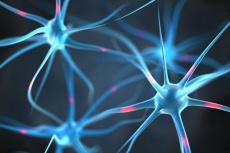
“My drug of choice is food. I use food for the same reasons an addict uses drugs: to comfort, to soothe, to ease stress.”
So said Oprah Winfrey, media mogul, producer, and philanthropist. Oprah’s candid words highlight the link between food and drug abuse, capturing the addictive struggle that millions of Americans face daily.
Thanks to decades of research, we have a stronger understanding of the neuroscience of addiction.
For example, we now know that consuming processed, high-fat, and high-sugar foods - and synthetic opiates! - are highly rewarding experiences for the brain.
We know that such substances are tremendously addictive, and that they rewire our brains in such a way as to make it harder and harder to quit.
But how does this knowledge apply to our everyday lives? How do we integrate modern scientific findings about addiction into our treatment protocols and recovery plans?
To learn more about this compelling topic, we interviewed a leading psychiatrist, professor, writer, and neuroscience addiction expert Dr. Richard A. Friedman.
About Dr. Richard Friedman
 Dr. Richard Friedman is a professor of Clinical Psychiatry and the director of Psychopharmacology Clinic at Weill Cornell Medical College in New York City.
Dr. Richard Friedman is a professor of Clinical Psychiatry and the director of Psychopharmacology Clinic at Weill Cornell Medical College in New York City.
He is an expert on the neurobiology and treatment on mood and anxiety disorders. He has done research on depression, and he is a contributing opinion writer for the New York Times. His column deals with mental health, addiction, human behavior, and neuroscience.
What Cookies and Meth Have in Common
In our interview, Dr. Friedman discussed …
- What food and drug addiction have in common
- How we’ve created an environment that is ideal for addiction
- How stress and addiction are connected; which stressors drive addiction
- The close connection between mental health issues and addiction
- How to heal from trauma (and avoid common pitfalls and misconceptions)
- The reason why addiction is neither a moral failure nor a completely hardwired behavior (and what it really is instead)
- The biological changes that drive addictive behaviors, and how to break the addictive cycle
- The driving forces behind the opioid epidemic, and safer alternatives for long-term pain
Dr. Richard Friedman on the Neuroscience of Addiction
Edited Transcript: The Neuroscience of Addiction with Dr. Richard Friedman
Caroline McGraw: In your recent New York Times piece on food and drug addiction - which was wonderfully titled What Cookies and Meth Have In Common - you discussed how humans have designed an environment that is ideal for food and drug addiction.
What are the defining characteristics of this environment?
Dr. Friedman: What we've done is extracted from natural materials on the Earth and designed foods that have really, really high concentrations of nutrients that are usually present in low concentrations in natural foods like fruits and vegetables.
 We have things like fast food and fried food, really calorie-dense foods, which are highly appealing. You've got a Twinkie, which is, essentially, all sugar and all fat. You have chocolate ice cream ... You've got a little protein, it's true, and chocolate is good for you in certain amounts, but it has a lot of fat and a lot of sugar.
We have things like fast food and fried food, really calorie-dense foods, which are highly appealing. You've got a Twinkie, which is, essentially, all sugar and all fat. You have chocolate ice cream ... You've got a little protein, it's true, and chocolate is good for you in certain amounts, but it has a lot of fat and a lot of sugar.
We've created these foods that we've never really evolved around that expose us, our brains, to these really, really calorie-dense foods.
Those are different and have an effect on our brain, which is very different than the kinds of substances in the foods that we would have eaten over many millions of years of evolution.
In a similar way, we've extracted from plants, initially, drugs that are highly rewarding and highly desirable.
We figured out how to make alcohol from fermented grain.
We figured out how to extract from the opium poppy opium.
Then, we figured out how to synthesize ever more powerful synthetic opioids, like morphine and the synthetics, like Oxycontin, and Oxycodone, and Percocet.
And, finally, drugs that are terrifyingly potent like Fentanyl, of which we're dying of overdoses all over the country, and are fueling the escalating opioid crisis.
Humans have figured out ways to identify these highly rewarding compounds, concentrate them, and present them to the rest of humanity.
Caroline McGraw: It's an amazing accomplishment, but I could see how it's dangerous too.
Dr. Friedman: Yes, very dangerous.
Caroline McGraw: Essentially, our biology has not caught up with our innovation yet. We're not evolved to handle this.
Addiction and the Brain Reward Center
Dr. Friedman: Right. We're evolved to handle the rewards that are not quite that powerful. The reason they're dangerous is because they can really hijack the brain's reward center and bring about addictive behavior.
We have a reward center in our brain, which is the site of the action of all recreational drugs.
They all act on the brain reward center to produce a signal that basically says, "Hey, this is a really important experience. Don't forget about it," and to generate a sense of craving, wanting, and pleasure.
Everyday things that are pleasurable - like a sunset, good sex, good food - they activate the rewards halfway at a certain level …
If you give somebody a drug like opium or heroin, the relative stimulation and activation our brain reward center is much, much greater, much greater than anything you've ever grown up around. It's more powerful, so once you've had that, everything by comparison seems relatively dull.
An everyday reward like great sex, a beautiful sunset, or wonderful food pales by comparison to these man made, powerful rewards like drugs.
The Connection Between Stress and Addiction
Caroline McGraw: Then when we throw stress into the picture ... You've written about how stress and addiction are intricately connected, and that, often, you have these stressors that you want to escape from, and then you turn to the highest reward.
 Dr. Friedman: Right. Stress actually produces biological changes in our brain that render us more likely to crave drugs.
Dr. Friedman: Right. Stress actually produces biological changes in our brain that render us more likely to crave drugs.
It literally changes the preference in the reward center in your brain, so you're more likely to want to use drugs.
And that, probably, is right at the heart of the opioid epidemic in the United States.
We have people who were previously never drug addicts, white working class Americans, that's the largest source of mortality right now among middle-class whites. It's not natural deaths like heart attacks or strokes.
It's opiate overdoses.
Stress actually produces biological changes in our brain that render us more likely to crave drugs.
What's driving that? Why are people suddenly using so many opiates, and getting addicted, and dying?
Well, one possible explanation is the social stress that many Americans have experienced from the economy, from the loss of social fortune, from all of these things. It's enormously stressful. It's changed the biology of their brain and made them more vulnerable to addiction.
Chronic Stress Can Precipitate Addiction
Caroline McGraw: Wow. You perfectly anticipated my next question, which is, can you talk about some of the levels of stressors be they physical, or social, or emotional stressors? What are most likely to precipitate addiction?
Dr. Friedman: I think the scenario of being trapped in a situation where stress is chronic, and you don't see a way out. That's the bad kind of stress.
Acute stress is healthy, like a challenge.
Say you have to give a lecture, or you have to take a chance and stand out. You have to do something which is a little outside your comfort zone, but it's brief.
You're going to have exposure, and then you're going to be able to go back to your comfort. That's an acute stress, and that produces growth, emotionally, biologically, psychologically in every way.
If you have chronic stress that you can't escape from, that's harmful biologically and psychologically.
It's like having a pebble in your shoe that you can't take off, and you have to learn to walk with it.
What happens?
You limp.
Likewise, if you're exposed to chronic stress, then biologically it has a bad effect on your brain, and on mood, and on all kinds of other functions.
Caroline McGraw: Right. It's the difference between giving a TED talk - which is very stressful and very exciting, but there's a growth factor, and it's a short-term thing - versus being in a job that you don't like, and you really don't want to be there, and you feel trapped day after day after day.
Dr. Friedman: Right. That second scenario you mentioned is incredibly stressful and gives people all kinds of mental and physical illnesses. It's associated with diabetes and hypertension. The risk of mortality goes up. It's also associated with depression because it's a form of learned helplessness where you feel trapped, and you can't actually figure out a way to get out of it.
Download Dual Diagnosis Free EBook
Addiction and Mental Health
Caroline McGraw: Exactly. That's a great lead-in to how mental health issues and addiction interrelate. You had written a column about how it's become a troubling trend that people are using drugs such as LSD to self-medicate for their mental health conditions.
Why is that folks with mental health conditions are more vulnerable?
Dr. Friedman: Well, there is a non-specific reason because they are feeling various forms of psychic pain, from which they would like to escape.
It does alter your mental state … let's say, into feeling high from Cannabis, or relaxed from alcohol, or relaxed from a drug like Valium.
It can take away undesirable emotions and undesirable thoughts, or at least mitigate them. It's an attempt. It's a sort of self-medication attempt to deal with painful states of emotion and thinking.
The problem is, it's not a very good solution because often the solution, if it's a recreational drug, creates another problem that doesn't necessarily make the depression better.
In fact, it might make it worse. Some of the drugs that people use to medicate for depression and anxiety bring about depression and anxiety unwittingly.
A Vicious Addictive Cycle
Caroline McGraw: Exactly. Wow. That's powerful. You also have written about this double bind where using drugs or overeating actually leads to brain change that, then, makes it harder to stop using drugs and overeating, so it's a vicious addictive cycle.
 Dr. Friedman: Yes. Once you start to change the brain in that direction … you develop loss of control and compulsive eating or compulsive drug use.
Dr. Friedman: Yes. Once you start to change the brain in that direction … you develop loss of control and compulsive eating or compulsive drug use.
What happens biologically is that the receptors that are located in your reward pathway become desensitized, so there are fewer of these receptors, and they're not so sensitive anymore.
What does that mean?
It means you feel things are kind of dull and boring.
You require ever higher levels of stimulation in order to feel alive or to feel satiated.
You need more drugs to feel the same degree of stimulation. You need more food to feel satiated.
When you do that, the receptors further lose their sensitivity, and they start to decrease in number. Then, you end up in this vicious spiral where it creates more and more compulsive use.
Caroline McGraw: If someone recognizes themselves in that, is there hope that you can, by changing your behavior, re-alter the structure of your brain and increase your receptors once again?
Neuroplasticity and Addiction Recovery
Dr. Friedman: Absolutely. That's the critical thing. The brain is neuroplastic. Our brains are constantly interacting with the environment inside and outside. We're reasonably sensitive to the influence of events in our environment.
Our brains are living. It's not a machine where you turn the knob, and it's set, and it stays there.
The brain is constantly changing … the neurons and the connections between neurons are being formed and improved.
 The changes that take place when you expose people to drugs, and when they get addicted, those changes largely are reversible.
The changes that take place when you expose people to drugs, and when they get addicted, those changes largely are reversible.
If you stop using drugs, and, let's say, you've stopped eating these calorie-rich foods, and you eat a more of healthy diet where you're basically eating very low on the food chain, low calorie-dense foods, like fresh foods where you have to cook them.
You're using ingredients that you actually find in nature, fruits, and vegetables, and chicken, and fish, and beef.
These are foods where the nutrients are present at the levels that we've been used to over many, many hundreds of thousands of years.
If you do that, then the receptors in your brain will start to return back to their baseline. You'll find normal foods and normal experiences once again pleasurable. The craving will cease.
Caroline McGraw: That's so helpful, both to understand that there is a future in which your brain will function differently, and you can have the power to affect change. Also, that there is a transition period. You're not just going to flip a switch, and it'll be, "Oh, now I'm done with drugs, and my brain is the same." There's an adjustment.
Dr. Friedman: There's an adjustment, and you have to learn ... You, literally, have to have your brain rewired. You have to learn how to live your life without those things.
In the interim, many people say,
"Well, how can I do that because it's so painful?
How long is it going to take my brain to become ... For this neuroplasticity to kick in where I won't crave these things?"
It can take weeks and months, and sometimes longer, but it does happen. The trick is figuring out some kind of solution, socially and behaviorally, in order to deal with the discomfort during the transition from addiction to addiction-free life.
Caroline McGraw: Finding a bridge. That makes total sense. That might not be something you'll need for your entire life, but for that transition period, it's increasingly important because you're rewiring your brain, and you might need additional support that you did not have otherwise.
Addiction is a Learned Behavior
Dr. Friedman: Right. You have to understand that much of addiction, whether it's food or it's drugs, is learned behavior. It involves not just the fact that your circuits have been hijacked, but, actually, it's a pathological form of learning.
 People think that they can go back over and over and get the same pleasure, whether it's a drug or it's food.
People think that they can go back over and over and get the same pleasure, whether it's a drug or it's food.
When you talk to people who are addicted, they're not experiencing pleasure. What they're doing is ... hopelessly trying to achieve something that reminds them of the first time they used the drug, which can never be recaptured.
The brain is fooled into thinking that if you only use more of the stuff, you're going to get that same wonderful feeling you did at the beginning, but you're not.
People are basically using it in order to prevent feeling bad. It's not that they feel so good.
Then there's all kinds of things along the way that happen where you start to associate people, places, and events with those drugs or foods.
You have to learn to avoid those cues that are linked to the thing you want to avoid, like the drug.
Some examples:
- You don't go to the bars where you used to go.
- You don't hang out with the people that you used this drug with.
- You don't go to the places where you used the drug because all of those cues can enlist a craving.
Caroline McGraw: Right. Right. You've primed your brain when you encounter that cue …
Dr. Friedman: Right, and that cue is linked with the experience of using the drug. The cue by itself will elicit craving.
Caroline McGraw: It's amazing, this whole process. It's relatable, obviously, on the level of drug use, but even for someone in a different context … maybe they're trying to recapture the way they first felt when they started dating someone, saying, "Oh, I just want to feel the same way again."
You try, and you try, and one day you wake up and you realize, "This is not working. What I'm doing is not working. It's not functional." It can be really scary: "Okay, well, I know what I'm doing is not working, but this is everything I've learned and taught myself how to do, so in order to unlearn this I have to jump out into the unknown."
Dr. Friedman: Right, and you have to have people help you who actually do know how to make things better.
Seek out people in support groups who have been through the experience that can teach you and show you what they're experience was like.
Then you can see it's not so scary.
You're not alone. It's common.
People do grapple with this, and they figure out how to deal with it.
Is Addiction a Moral Failure?
Caroline McGraw: That is such a good point. It also ties into a column that you wrote about this belief that people who deal with addiction, they're either totally in control, or they're totally powerless, and that there's this black and white dichotomous thinking that isn't really accurate.
You wrote, "The myth has persisted that addiction is either a moral failure or a hardwired behavior, that addicts are either completely in command or literally out of their minds."
If neither of those things are entirely true, what is a more accurate way of talking about personal agency and talking about what can a person control who is addicted?
Dr. Friedman: Right. Right. Wonderful question.
Well, we don't really have control of our feelings, and our cravings, and our desires, and those things vary a lot depending upon our individual drive, the set points in our brain, the things that we don't have much control over.
We don't get to control our genes or the nature of our desires or drives, but we do have some control, over what we do in response to that.
I think that it's a complicated interaction between the environment, and the effect of the environments on our individual psychology, and our individual drives.
What I would say to the people on one side who believe, "Just say no," will suffice … well, it doesn't actually work, empirically.
We've been down that road, and we've tried programs that are like that. D.A.R.E. was like that, for example.
Authority figures telling young people not to use drugs produces the opposite response, which is kids are notoriously defiant.
We know when an adult says, "Don't do this," they do this. It's psychologically bad, and it doesn't work.
What does seem more effective, actually, in trying to help kids understand the risks is a peer, somebody in their group who had an experience with the dangers and comes back to them and says:
"Hey, I, like you, once thought about doing this, but look what happened to me. I got into a car accident, and I lost my leg,"
or
"I became paralyzed, and this is a terrible, terrible thing. It's not fun. It's dangerous."
That has a much bigger impact on young people than moral scolding.
I think, on the one side, if you just say it's a matter of moral fiber, and it's all a matter of just character and control, that completely misses all of the biological evidence and data we have that there are unique differences between people who get addicted easily, and those who don't.
Most people who try drugs casually do not become addicts.
The people who become addicts have something different about them genetically. We know this.
There are factors that make people more likely to go in the direction of compulsive use when they're exposed once or twice.
Most people can try a drug and never see it again or try it again. They can have a glass of wine at a party. They don't lose control.
Neuroscience: Biological and Genetic Differences Can Influence Addiction
There are some people that once they start, they do lose control. Presumably, some of the reasons behind that have to do with biological and genetic differences between people.
It's not just a matter of moral fiber.
Unfortunately, life is unfair. Some people have won, and some people have lost the genetic sweepstakes.
If you've got a genetic loading to make you more vulnerable to enjoy drugs or use them, from the very beginning you have a strike against you.
It doesn't mean you're powerless. It just means that you have to be aware that you've got this vulnerability and act accordingly.
Where does agency come in?
Well, for somebody like that, it might be knowing that once they open the door a crack, it could be wide open.
Once they go down the path, and they have that first drink, they have started to kick the ball down. They've kicked the rock down the mountain, and before they know it, it's just going to be a stampede.
They've going to move very quickly [before] the loss of control.
Caroline McGraw: Wow. It's amazing how it really comes down to knowing yourself and accepting the particular hand that you've been dealt because, obviously, as you were saying, some people have more vulnerability than others in addiction, but some people have more vulnerability than others mentally or psychologically. There are so many levels of it.
Dr. Friedman: Right. The people who believe it's just a matter of moral character … usually those are people who don't have the problem. They can't experience this as feeling out of control because they've never had that experience.
They imagine, "Well, if somebody does it, they must be like me, and they choose to do it."
I would say to them, "Why on Earth would somebody want to be addicted, or lose control, or eat to the point where they're so obese they can't sit in a movie theater seat or get on an airplane?"
That makes no sense whatsoever.
There are reasons that go beyond just moral fiber and character that explain this kind of behavior, this compulsive use. Much of that is neurobiological and genetic.
Trauma and Addiction: Myths and Facts
Caroline McGraw: Yes. I also wanted to touch on the question of trauma and addiction.
Speaking about vulnerability, we know that folks who have significant early-life trauma often have a greater vulnerability for drug addiction, alcoholism and substance abuse.
You had written a column about the Pulse shooting, and how some of the beliefs that we have about trauma are helpful and some are not.
For example, people don't always think about the idea that it's helpful to preserve the physical locations where traumatic losses can occur. It's not always helpful to debrief right after.
Can you talk a bit more about how to work with folks who have been through trauma effectively?
Dr. Friedman: Right. Well, first of all, most people who experience a trauma do just fine.
A very small number of people actually develop this traumatic stress disorder where they have pathological fear responses in the future to things that are like the trauma.
It's a real number, but the majority of people who are exposed to a traumatic event - while they're acutely traumatized and really upset - after about a couple of weeks, they're just fine.
They do not have PTSD.
 For people who do go on to develop PTSD, the thing that happens after - people have studied this - if you take different people who have been exposed to, let's say, a shooting or a trauma, and you try to debrief them - which is a well-intended intervention where you try to get them to talk about their feelings and their experiences - it paradoxically has the opposite effect.
For people who do go on to develop PTSD, the thing that happens after - people have studied this - if you take different people who have been exposed to, let's say, a shooting or a trauma, and you try to debrief them - which is a well-intended intervention where you try to get them to talk about their feelings and their experiences - it paradoxically has the opposite effect.
It does not prevent PTSD.
It actually interferes with the person's ability to cope with and deal with a traumatic emotional event.
People have their individual way of doing it. In some ways it may be very stimulating to do that [debrief]. It may unwittingly increase the risk of trauma because what you're doing is making the person relive it in their mind, so the memory's burned in even more deeply by the debriefing.
What's better is just to reassure people that this terrible thing has happened.
You get all the people who are close to them, and their families who love them and take care of them, and you say, "You know, you're going to be okay."
Then, you say,
"A small number of people who get traumatized develop this problem with PTSD down the line, and these are the symptoms. If you develop any of these, it's treatable, and we can help you."
Making them go through their emotional responses over and over in response to the trauma is not preventing it from PTSD, and it doesn't help people adjust any faster.
They should be left alone to be supported. Of course, if they want to talk about it, by all means. But to force a one-size-fits-all ...
It's a model that's based on the cathartic idea that talking is always good, expressing your feelings even if you don't want to do it, is always good.
But it's not.
Caroline McGraw: I'm married to a very introverted man who would strongly agree with that! He's not expression-for-expression's sake, so I can really appreciate that.
Then, of course, I have friends and family members who really do have much more of a need to verbally process things. It goes back to what you're saying, it's an individual basis.
The Future is Bright for Addiction
Just as we're wrapping up our time, any final words of wisdom or encouragement for our listeners who are dealing with addiction or have a loved one dealing with addiction?
Dr. Friedman: Yes. I think that the future is really bright for addiction. It's one of the problems - one of these human behaviors - that we know more about than almost any other.
There are really effective treatments for addiction. It really should be considered an illness, not a moral failure. We don't want to stigmatize it.
We want to encourage people to see this as a failure to adapt in a very, very interesting, complicated relationship between our own individual biology and the environment.
There's a lot that can be done to actually treat people who are addicted, and make them well.
Download Dual Diagnosis Free EBook



